5 Life-Changing Lessons From a Plane Crash Survivor.
Your life's about to be transformed. Are you ready?
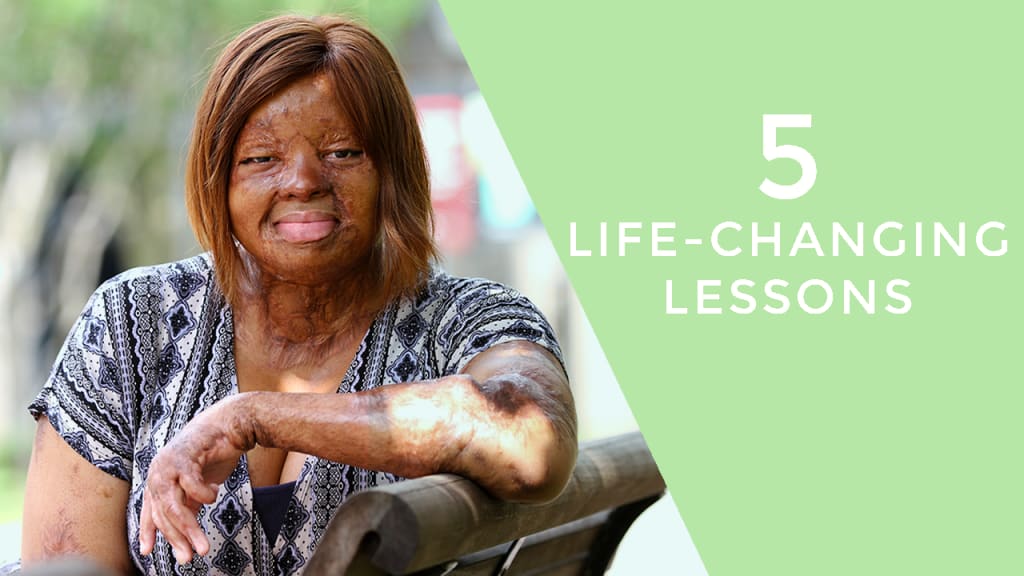
Your life's about to be transformed. Are you ready?
My life changed forever on December 10, 2005.
I boarded a plane in Abuja, Nigeria, with 60 of my classmates, to fly home from boarding school for Christmas. With 15 minutes left in the flight, the pilot announced that we would be landing at the airport shortly. There was some seemingly normal turbulence—and then it progressed dramatically.
Passengers were confused and nervous, and a woman in the back of the plane screamed, triggering panic. It was clear that the plane was malfunctioning. I felt a kind of awe, as it was impossible to reconcile what was happening to reality. I reached across the aisle to hold my friend’s hand, and we prayed. I remember hearing a loud, scraping metal sound, and after that I don't remember anything else.
These are the words of Kechi Okwuchi, one of only 2 survivors from the devastating Sosoliso plane crash that happened on December 10, 2005.
That plane crash was a dark time for so many Nigerians, on so many personal levels. These were kids. Children. Who were returning home from Abuja to see their families in Port Harcourt.
The crash took the lives of 108 people. My cousin was on that plane, so I know first-hand how it felt to deal with the loss of a loved one on that plane. The pain is still harrowing and something that's difficult to write about.
However, if there is any kind of good that has come out from that devastating wreck in 2005, it is one of the survivors, Kechi Okwuchi who is now using her voice to inspire, shape, and educate us.
She is an inspiration and her words are so transformative. Today, I'll be sharing with you 5 lessons she has bestowed upon us, and hopefully you can apply 1 or more of these lessons into your life. I certainly know my perspective has been courtesy of her words.
**For more stories like this, as well as other fun articles and lists that I post everyday, be sure to like and follow my Facebook page so you don't miss out on anything!
Lesson #5.
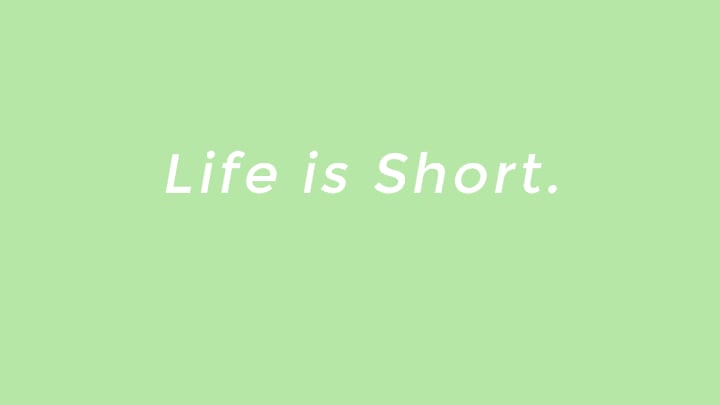
Kechi talks about the day of the accident, and what her thoughts were before the plane started malfunctioning. She said:
I remember being mad at my mom for not booking a window seat and being like 'I'm going to give her a lot of stress about this'
This was her big thing, her big stress at the time, not getting the aisle seat she wanted. Of course at the time, that must have felt like a big deal, but that is because she didn't know what was to come.
So many times we hold on to to and get so mad about things that in the grand scheme of things, are inconsequential.
After reading this article, I thought to myself: If I knew my life would end in the next 5 minutes, what would I do? Would I still be complaining about the woman who said my shirt wasn't fine? Would I still be mad that my boss gave me a 10% bonus instead of the 20% I worked my ass off for?
Chances are I wouldn't be worked up about those things at all. I'd be too preoccupied calling up my loved ones and getting my things in order.
Of course this isn't to say that you shouldn't hold your boss accountable for not giving you the raise you deserve, or that you can't be upset about the woman dissing your style...but it does mean you should have levels, perspective. You can't go 100% ham over any and every provocation because life is short, and you should spend all your moments laughing and loving and having a good ass time.
Don't take life TOO seriously. It's short.
Lesson #4.
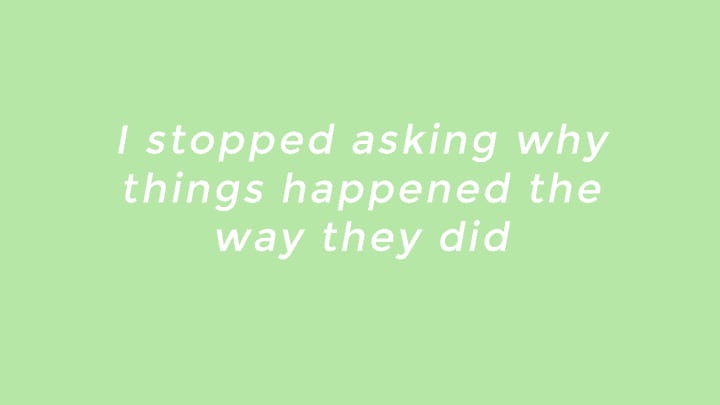
Speaking about her life after coming to and realizing that she was only one of two survivors, Kechi talks about how she went into depression, and how she found the light after. She said:
Four months after the accident, the truth was made known to me: the airplane crash had killed 107 of the 109 passengers.
I fell into a depression. My mom was my rock and pulled me out of the pits. I leaned into my faith, and onto my family. Music played a large part in my recovery too. It was a wonderful way to distract myself from the pain.
Eventually, I decided that I wanted my life to mean something, especially to the children who passed away, and to their families. I wanted to live in a way that would make them proud. I stopped asking “why” things happened the way that they did, because I knew that I would never get an answer. Instead, I found purpose in my survival, and decided to live as much and as well as possible, to commemorate the memory of those lost.
This is a lesson that I'm still trying to learn. Why bad things happen to good people? A close family friend recently lost his life to COVID-19 and it's been really tough to say the least. Everyday, thoughts of his life and his good deeds come to my mind, and I find myself weighing his good actions against his eventual demise. Why couldn't the good save him? Why didn't our prayers? Why didn't the prayers of the church?
We're good people. We tithe. We pray. We give back. He gave back so much. And so why?
What I guess I'm trying to learn is the fact that we cannot do good solely for the reason of trying to get good in return, we must do it selflessly because at the end of the day, all of the good might not account for anything.
But you do it. And you do your best. And that's all that can matter.
Asking questions truly never brings any answers that will heal the hurt. So I'll be following Kechi's advice and stop trying to ask 'why'. I can only celebrate the life that my uncle lived and try to continue doing the good he did and giving back the way he taught.
Lesson #3.
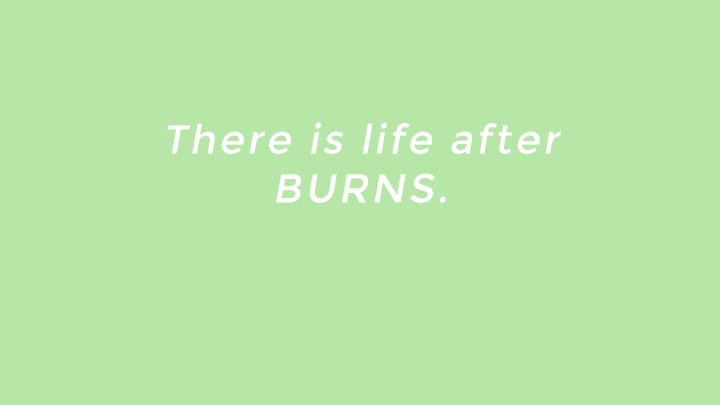
While describing her experience after coming out of surgery and meeting other burn victims, Kechi said:
In 2010 I attended the Phoenix World Burn Congress in Galveston. It's a gathering hosted by the Phoenix Society, which is a nonprofit dedicated to empowering anyone affected by a burn injury. Before that I had only met burn survivors who were my age or younger, fellow patients at the hospital. But at the event I saw adults with scars who were doing well for themselves, and enjoying life. They showed me there is life after burns.
Wow!
The weight of these words need a moment to sink in, because that line is very powerful.
She was burned. 65% of her body, third-degree burns, her life completely changed. Still, life moved on.
The sun rose, the sun set, time ticked on. So she had no choice but to tick on too.
Despite the hurt, the pain, the destruction, there is life after the hurt. There is life after the pain. There is life after the burn.
There is life after the burns.
Lesson #2.
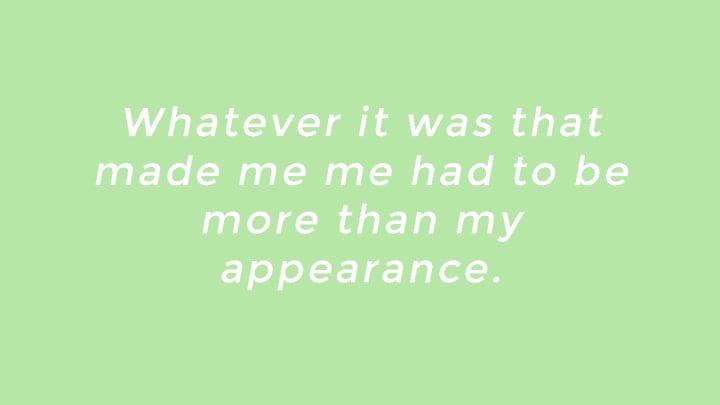
Talking about seeing herself in the mirror for the very first time, Kechi said:
Before the accident I was very vain and into my looks. The first time I saw my reflection after the accident—although everything just looked so different—I still somehow saw Kechi in that mirror. I realized that whatever it was that made me me had to be more than my physical appearance. My scars do not define me.
Wow! This one goes deep. Even for me, and for I think anybody that's navigating this hyper-sexualized, look-centric IG filtered world we live in.
We're sometimes too hard on ourselves, always trying to change and compensate for, improve, reduce, hide, reveal...something, there is always something.
But there has to be more. There has to be more than just the look. There has to be more than having flawless skin and a body people will die for. There has to be more.
What makes you you certainly has to be more than your appearance, because if that goes, who will you be? Will you be someone you'll still be able to look at in the mirror and be proud of? Why?
Think about that for a moment.
Lesson #1.
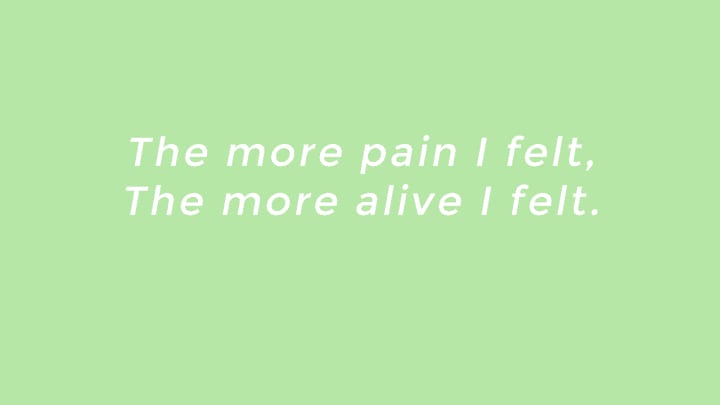
Speaking about her healing process and getting better during surgery, Kechi said:
For the first few months of recovery, my body was numb. As I healed, feeling returned, and with it came pain and itching. I suffered insomnia because of the discomfort. But the more pain I felt, the more alive I felt.
Let that sink in because something about that line completely broke me.
Right now we're living through one of the most harrowing times most of us have ever experienced in our lifetimes. People are losing their jobs left and right, some people have nowhere to go, people are in pain and some can't even afford the medicine necessary to heal.
But that pain, that hurt, that discomfort as harrowing as it is means that you're alive.
It means that you're alive.
It means that you're alive.
And because you're alive, you can try another day. You can try another way. You can survive another day. Because you're alive.
Because you can feel that pain, you are alive.
You are alive.
You are. Alive.
***********************************************************************
Like and follow my Facebook page so you don't miss out on any new and interesting lists, articles, and stories I post every single day.
To read other interesting stories I know you'll love right now, click here.
Until next time, have a wonderful rest of your day!
About the Creator
Jide Okonjo
I have ONE account and MANY interests. My page is a creative hodgepodge of:
🇳🇬 Nigerian news stories for my dedicated Nigerian readers.
🎥 Movie and music recommendations, listicles, and critiques
📀 Op-eds, editorial features, fiction






Comments
There are no comments for this story
Be the first to respond and start the conversation.